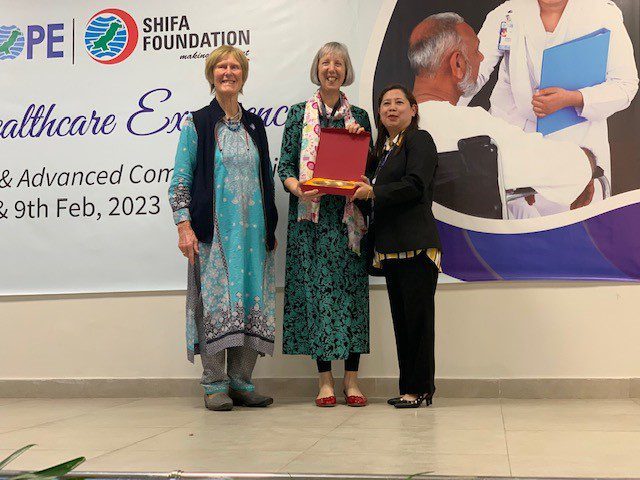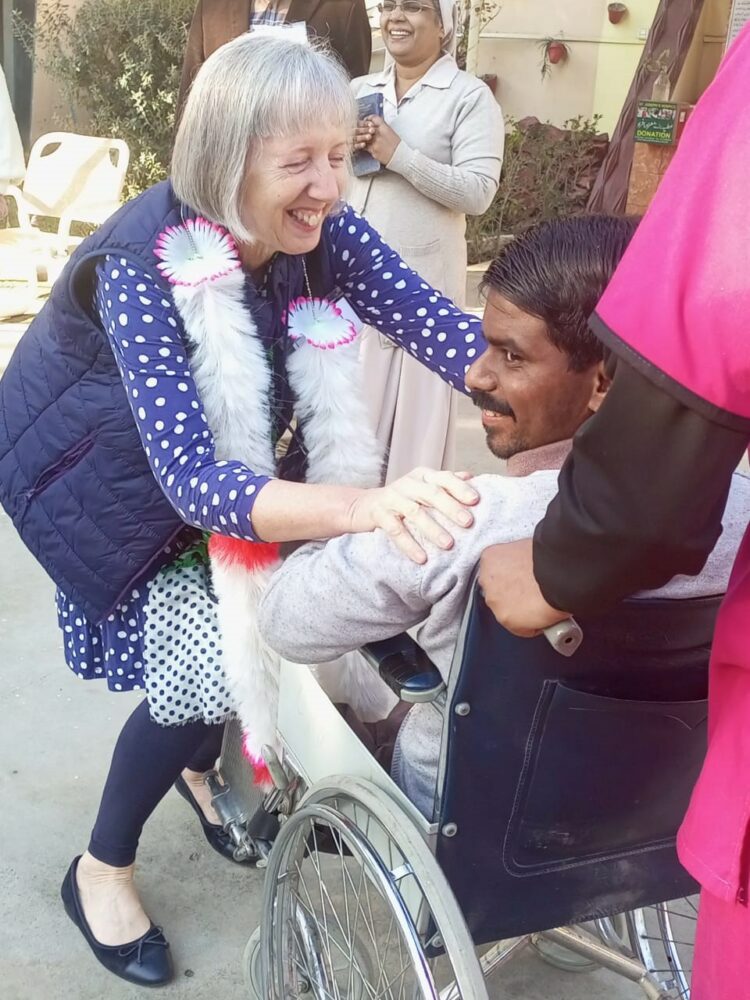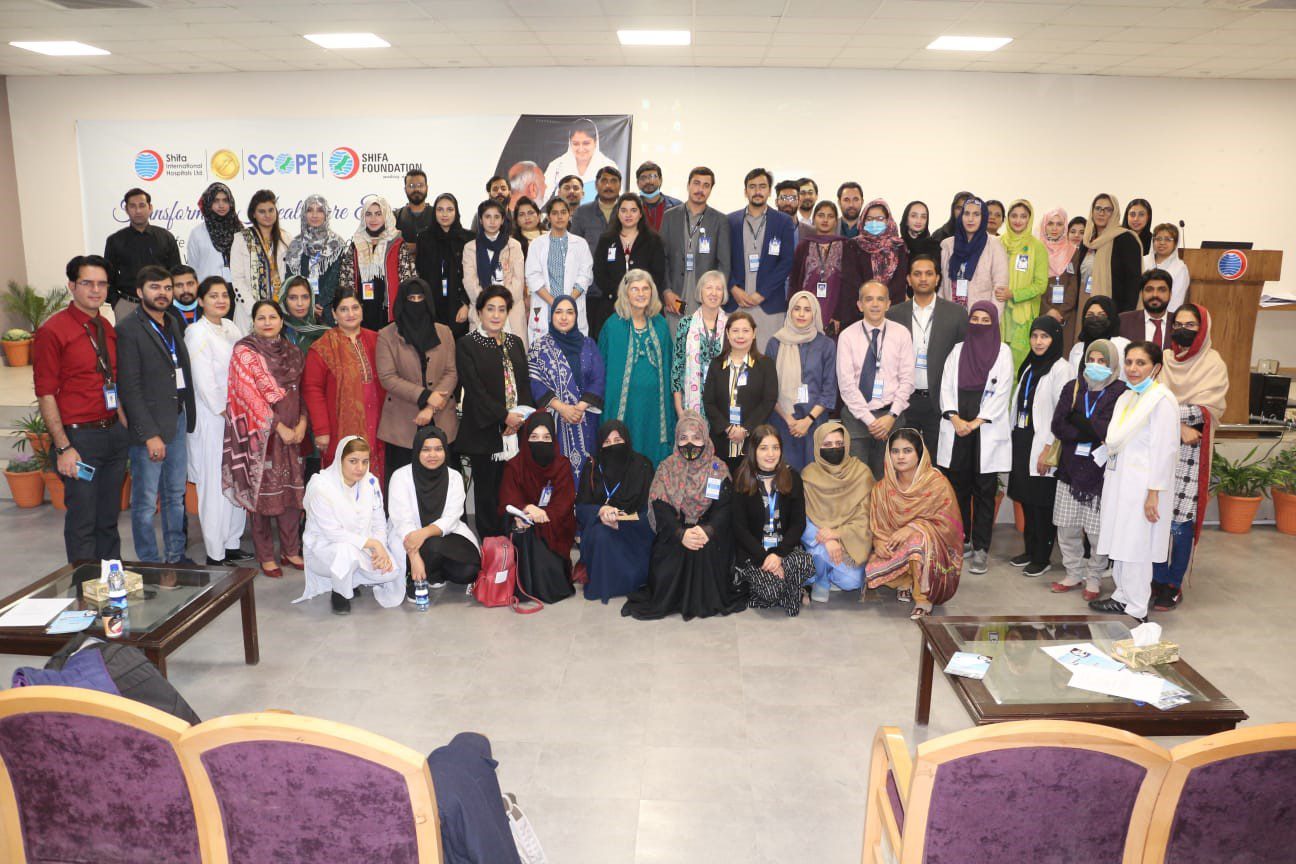End-of-life care training in Pakistan
Rowcroft Hospice’s Programme Director of Care Services Dr Gill Horne has recently returned from a visit to Pakistan where she volunteered as a tutor during her annual leave with the charity PRiME (Partners in International Medical Education) to train a group of staff in palliative and end-of-life care. Here she outlines the training that she delivered and gives an intriguing insight into the world of ‘hospices’ in Pakistan.

Palliative care in Pakistan
“One of the main challenges facing people in Pakistan is that patients have to pay for their treatment and care – this means that access to end-of-life care by healthcare professionals is dependent on finances. Those who can afford care will likely find themselves cannulated and given IV fluids in hospital at the end of their lives, but they won’t experience the high level of quality palliative care that hospices like Rowcroft provide, as Pakistan does not have specialist palliative care services.
“Palliative care is a new concept in Pakistan. However, I did meet a doctor there who had worked in Yorkshire as a GP and she was hoping to set up a ‘hospice at home’ type service to provide palliative care in the community. She was keen to learn about Rowcroft’s Hospice at Home service; hence I may be visiting again in 2024 to support with further training around this.”
The hospice in Rawalpindi
“I discovered that ‘hospices’ in Pakistan are not the same as in the UK; the hospice I visited in Rawalpindi was more like a UK nursing home with some ‘patients’ having lived there since childhood and others being cared for at the end of their lives. The building was very basic with 15 female beds in a Florence Nightingale-style ward and the same for the men. It was a world away from the comfortable home-from-home environment that we provide at Rowcroft.”

Gill’s training
“I designed and delivered a two-day interactive ‘introduction to palliative care programme’ for the hospice staff in Rawalpindi. The objectives were to help course participants to: gain a greater understanding of what high quality palliative and end-of-life care entails; understand the five priorities for care of the dying person; recognise and be able to communicate about dying to the person and their loved ones; learn ways of involving a patient’s loved ones in care of the dying person; gain knowledge of the key principles in the management of pain and common symptoms at the end of life; plan nursing care for someone who is dying and their family; gain a greater understanding of how to support loved ones pre- and post-bereavement and understand the importance of self-compassion/self-care.
“The staff were so eager to learn; they enjoyed the interactive teaching. Being able to discuss in groups and learn from various activities helped them to learn from each other and me from them. It was so rewarding to experience this.
“I also designed a half-day workshop on aspects of palliative care for nurses and other health professionals at Shifa Hospital, a Muslim hospital in Islamabad.”
The learning for Rowcroft
“Learning about a different culture’s approach to end-of-life care helps us at Rowcroft in terms of understanding patient, family and staff expectations if they have moved from Pakistan to live or work in Devon. I learned that it is not commonplace in Pakistan to discuss prognosis in front of the patient (something that is usual practice here in the UK). However, the participants in the training session were keen to learn how to have conversations about prognosis with both patient and family members.”

